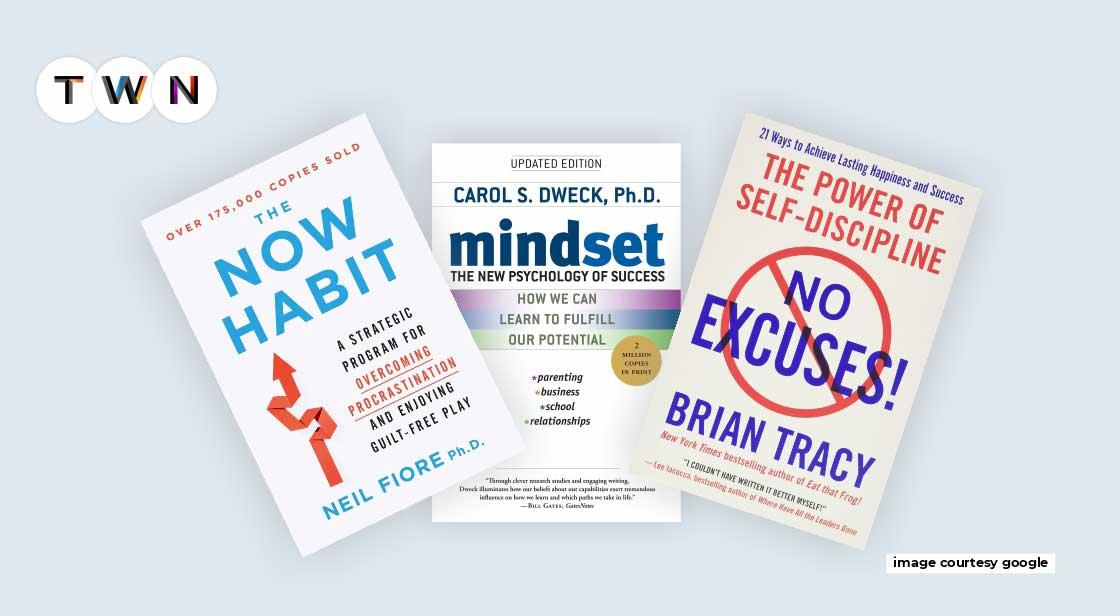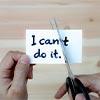Best Books on Self-Discipline and Self-Control

Blog Post
Reading books has long been known to have numerous benefits for one's mental and emotional well-being. When it comes to self-discipline and self-control, reading can be a powerful tool to help develop and strengthen these traits. Books can provide insights and knowledge on how to manage impulses, stay focused on goals, and overcome distractions.
They can also offer practical tips and strategies on how to improve time-management skills and prioritize tasks effectively. Moreover, reading can help individuals develop the patience and perseverance necessary to achieve long-term goals. In addition, reading can be a healthy and productive way to cope with stress and negative emotions, which can help reduce the likelihood of impulsive or destructive behaviors. Overall, incorporating regular book reading into one's daily routine can be an effective way to cultivate self-discipline and self-control, leading to greater success and fulfillment in life.
Ahhh, self-discipline! A success trait that many of us wish was easier to master. Would you take a pill to improve your self-discipline if I told you there was one?
So would I, hahaha.
Unfortunately, no pill exists.
But I have something far better for you than some easy peasy pill. I have 12 of them for you.
And I am confident they will be beneficial to you.
In the article, you will get:
- 4 Best Books on Self-Discipline and Self-Control
- Best Books on Self-Regulation
- Top Audiobook Recommendations
- Other Good Recommendations
- A Take-Home Message
Let's explore! #TWN
Willpower, self-control, and self-regulation are just a few of the terms used to describe self-discipline.
It helps us stay focused, deal with distractions adaptively, and complete our tasks, among other things.
Some researchers associate self-discipline with achievement, others with well-being, and still others contend that it is a valuable finite resource.
If you want to learn more about self-regulation and how to improve it, this article outlines some of the best books on self-discipline and self-control to help you make an informed decision. Some are categorized as "personal development," while others provide a slightly more academic treatment of the concepts at hand.
Listed below are some of the best books on discipline. Read on to discover something that piques your interest!
4 Best Books on Self-Discipline and Self-Control
We've learned a lot more about how willpower works and looks since Mischel's Marshmallow Test in the late 1960s. It's resulted in a burgeoning market for self-help books that aim to provide readers with practical strategies, motivation, and insight into their habits.
This section contains a collection of popular self-help books on the subjects of self-discipline and control. We've written these suggestions with the average 'you and I' in mind, and they're not overly academic unless otherwise stated.
Perfect for a lighter morning commute or a summer read. In addition, after you've chosen a fantastic book, visit Self-Discipline Exercises for even more motivation and inspiration.
1. Mindset: The New Psychology of Success – Carol S. Dweck
It is regarded as the seminal work on Growth Mindset for the layperson – if you want to read about self-control as part of a larger picture of personal growth, this book is ideal.
Professor Carol Dweck is well-known in the field of positive psychology for her extensive contributions to the scientific literature on intelligence, motivation, and mindset, among other topics. This simple but insightful read is an excellent starting point for anyone interested in learning about fixed vs. growth mindsets.
Dweck's work on the latter is essential reading for anyone interested in the role of effort, practice, and hard work in personal development. In this way, it isn't solely focused on self-control but rather provides a more comprehensive view of its importance in achieving your goals.
Related: Which Books Are Recommended For New Age Entrepreneurs?
Mindset is based on sound psychological research, but it's easily digestible and enjoyable for general readers who don't want to wade through mountains of data. It goes over the concept in detail and uses anecdotes to illustrate key points.
Get this book on Amazon.
2. The Now Habit: A Strategic Program for Overcoming Procrastination and Enjoying Guilt-Free Play – Neil Fiore
This book is jam-packed with techniques for procrastinators and perfectionists looking to boost their productivity. It's a simple and straightforward read with plenty of advice for people who, let's face it, don't understand why they procrastinate.
Dr. Neil Fiore encourages his readers to dig deeper into the root causes of their problems so that they can better understand and address them.
It is a powerful book because it offers to help you do things 'Now,' create a positive habit, and break old, unhelpful ones. Perhaps not compelling enough for some serious procrastinators, but a must-read for anyone who wishes to get things done and move on without feeling anxious.
Get this book on Amazon.
3. No Excuses! The Power of Self-Discipline – Brian Tracy
Brian Tracy is the author of several popular goal-setting books, so his knowledge of self-control is extensive. This book is 300 pages long and divided into 21 chapters, each with tactical activities that will help you apply the concepts he discusses.
It's broken down into three main categories: personal goals, financial and business goals, and general well-being, with domains like relationships, friendship, personal excellence, responsibility, health, leadership, and time management.
In terms of specific approaches, he focuses on nine disciplines in particular, such as daily goal-setting, persistence, hard work, and so on. This book's 'tone and flavor' are best described as motivational—not it's a heavy read at all, and you can easily jump back and forth between episodes as you feel like covering definite topics.
Get this book on Amazon.
4. The Power of Habit: Why We Do What We Do, and How to Change – Charles Duhigg
After observing collective habits at work in rioting mobs overseas, Charles Duhigg, a business reporter for the New York Times, wrote this book on habits.
He became fascinated by human behavior and began researching the "loops" that our brain enters to conserve energy.
It's an insightful look at how habitual behaviors can sabotage even the best intentions and how they can influence our actions in more ways than we realize.
Duhigg discusses the three stages of cue, habit, and reward that can shape our actions and some of the observations on how habits work at the brain level. He introduces specific interventions to change habits and regain self-control throughout the book, with a focus on the latter parts.
Get this book on Amazon.
5 Best Books on Self-Regulation
In everyday conversations, the terms self-regulation, self-control, and self-discipline are frequently interchanged. However, behavioral psychologists most commonly use the first term to refer to a particular set of mechanisms.
This section contains books that are either:
- Written by licensed therapists or psychologists;
- Primarily based on psychological research; or
- Firmly suggested by/for therapists.
They're also excellent reads for anyone looking for a slightly different, possibly more scientific perspective on self-control.
1. Willpower: Rediscovering Our Greatest Strength – Roy F. Baumeister and John Tierney
One of the central premises of this book is that willpower is a limited resource. It, along with IQ, the authors argue, is one of the most important determinants of whether or not we succeed in life.
This book explains how willpower is strongly linked to happiness, emotional well-being, social support, physical health, and other factors.
So, at least in part, self-control is about consciously managing how we channel our energy—what depletes, replenishes, and even when we should put things off (like critical tasks) until later.
Willpower is presumably one of the highly influential texts on self-discipline and self-control, having been cited numerous times by other self-development authors. It's a 316-page read written by psychologists, so it includes some fascinating experiments to back up its strong and convincing arguments.
Get this book on Amazon.
2. The Little Book of Big Change: The No-Willpower Approach to Breaking Any Habit – Amy Johnson PhD and Mark Howard PhD
Dr. Amy Johnson, a psychologist, explains the neuroscience of addiction and habits in this fascinating book, arguing that changing them is very possible.
It's popular among counselors, therapists, and other helping professionals because it focuses on recovery while also addressing how we can change our tendency to think in certain ways.
There are useful insights for those suffering from anxiety or anxiety-related disorders, but it can be a little heavy at times for reluctant readers.
Dr. Johnson's approach to breaking down habitual behaviors to gain a better grip on them, as well as tuning into your internal narrative, are two highlights. Psychologists will benefit from it because of its potential application in Cognitive Behavioral Therapy.
Get this book on Amazon.
3. The Marshmallow Test: Mastering Self-Control – Walter Mischel
Walter Mischel was the renowned self-control psychologist who devised the famous Marshmallow Test, which investigated the complexities of delayed and instant gratification in children.
He conducted his first studies with preschoolers in the second half of the 1960s, offering them either "a single marshmallow now or two marshmallows in ten minutes."
He later examined these children's academic performance, obesity rates, and other variables, paving the way for many more researchers to build on his findings.
This book provides the reader with more than just a helpful overview of how to improve your self-control; it also provides an engrossing look at one of the most eye-opening studies in modern psychological history.
Get this book on Amazon.
Related: How To Develop Entrepreneurial Skills And Start Your Own Business
4. The Willpower Instinct: How Self-Control Works, Why It Matters, and What You Can Do to Get More of It – Kelly McGonigal
Dr. Kelly McGonigal introduces readers to the what, how, and why of willpower from a variety of perspectives in this book. She considers the benefits and drawbacks of self-control using not only psychological research but also medical and neuroscientific findings.
Readers interested in the effects of willpower on our physical health, cognitive abilities, and emotions will enjoy this informative read, in which McGonigal references relevant studies regularly.
It discusses the roles of mindful awareness, nutrition, mindset, and self-compassion in self-discipline, as well as practical advice on productivity, habits, and procrastination.
Get this book on Amazon.
5. The Science of Self Control – Howard RACHLIN
Emeritus Professor Rachlin's The Science of Self Control is only 240 pages long, but it contains a wealth of deep, scientific insights into self-control.
It is a textbook, an academic read for those who appreciate solid data, and it covers several experimental research to examine various key principles of self-regulation – how they relate to decision-making, behavior, and more.
Because it is, after all, a textbook, there are charts, diagrams, and – on occasion – numerical data. Nonetheless, Professor Rachlin manages to make this a wonderful read for anyone with a curiosity in behavioral science.
Get this book on Amazon.
Top Audio book Recommendations
1. Eat That Frog! 21 Great Ways to Stop Procrastinating and Get More Done in Less Time – Brian Tracy
Another Brian Tracy book, this one with 21 practical techniques for those who want to get things done quickly and stop procrastinating.
It is a 2-and-a-half-hour program that focuses primarily on workplace productivity, introducing logical (and, some might argue, commonsense) tactics for improving the same.
Some examples are:
- Prioritizing and concentrating on the 20% of tasks that generate the most valuable outcome is the Pareto efficiency concept;
- Taking seemingly overwhelming tasks and breaking them down into manageable steps;
- Creating personal deadlines for achieving your goals; Setting time limits; and
- Making an effort to eliminate distractions.
Tracy delves a little deeper into the fact that we all have different reasons for procrastinating. This audiobook has a technique for everyone in this regard.
Get “Eat That Frog!” in audio format from Audible.
2. Smart but Scattered Teens: The “Executive Skills” Program for Helping Teens Reach Their Potential – Richard Guare PhD, Peg Dawson EdD and Colin Guare
This book is primarily aimed at parents and was written by two experts, Drs. Richard Guare and Peg Dawson, as well as a young adult named Colin Guare.
It draws on psychological studies to provide practical, science-based strategies for assisting teenagers in dealing with issues such as procrastination, lack of focus, and impulse control in a productive manner.
It provides an executive skills-based approach for adults to address common problems that youths face, such as lack of organization and forgetfulness, in a more efficient way than micromanagement or punishment. In this sense, it considers principles such as working memory and self-control and how they can be developed through the use of appropriate approaches.
Smart but Scattered Teens is available on Audible.
3. Drive: The Surprising Truth About What Motivates Us – Daniel H. Pink
With leaders, managers, and Organizational Development practitioners, this is a very popular book.
Its central premise is that intrinsic motivation is driven by three factors: a sense of purpose, autonomy in how we go about achieving our goals, and mastery – we are driven to get better at things.
Self-discipline doesn't have to be about battling the odds tenaciously for the sake of it; when we are intrinsically motivated, we naturally move toward our goals regardless of the odds.
At least, this is Pink's premise, and he backs it up with plenty of scientific evidence. It lasts about six hours and includes plenty of corporate and scientific case studies to keep the listener entertained.
Get Daniel Pink’s Drive on Audible.
Other Good Recommendations
Books for Children
It is critical to teach children self-control. As any parent or early childhood educator knows, it can be an exercise in emotional self-regulation for the adult as well. That's why we've included some recommendations for kids in this final section.
Here are a few ideas that will potentially make things a little easier while also keeping the kids entertained.
- My Mouth Is A Volcano! by Julia Cook: Louis is a young man who has a difficult time not interrupting others. In this colorful book for children aged 5 to 8, he discovers the benefits of listening and being patient instead.
- A Grand Bed Adventure: Developing Habits of Self Discipline for Children by A. M. Marcus: Little Ted asks his grandfather some common questions about daily routines, which prompts him to engage in some deep (kid) thought about self-discipline. A picture book for children aged four to ten.
- Katie Loves the Kittens by John Himmelmann: Katie the dog's overzealous enthusiasm for some adorable kittens scares them, and she has no idea why. In this lovely, relatable picture book for children aged 3 to 8, she learns to control herself.
- What Were You Thinking? by Bryan Smith: In this storybook for children aged 4 to 8, Brayden makes a few poor jokes and comes to regret his actions. His teachers and mother try to teach him how to make better decisions and self-control.
Related: Read These Books to Master the Art of Marketing
Self-discipline and self-control are crucial traits for anyone who wants to become a successful writer. Writing a book is a long and challenging process that requires discipline and self-control to stay focused and motivated throughout. Book writing services can help with this by providing structure and accountability, helping writers to set goals and deadlines, and providing feedback and support throughout the writing process.
In addition to providing assistance with the practical aspects of writing, book writing services can also help writers to cultivate the discipline and self-control needed to succeed. By setting clear goals, establishing a writing routine, and staying motivated and focused, writers can develop the habits and mindset necessary to write a successful book.
Overall, book writing services can be a valuable resource for writers looking to develop their self-discipline and self-control, as well as their writing skills. Whether you're an aspiring author or a busy professional looking to share your expertise through a book, working with a book writing service can help you achieve your goals and bring your ideas to life.
A Take- Home Message
There are a plethora of self-development books on the market that claim to help you improve your focus, productivity, and happiness. It would be foolish to dismiss them all as fluff because you never know where your next great inspiration will come from – so we've included some popular self-help titles in this article.
We hope you enjoy some of these science-based reads as much as we have. Expert assistance is never a bad idea when it comes to improving and enhancing our abilities at anything, including self-control!
What books do you think we overlooked? Do you have any additional suggestions or recommendations for us to consider? Please let us know in the comments section, and happy reading!
We hope you found this article interesting.
You May Like
EDITOR’S CHOICE












